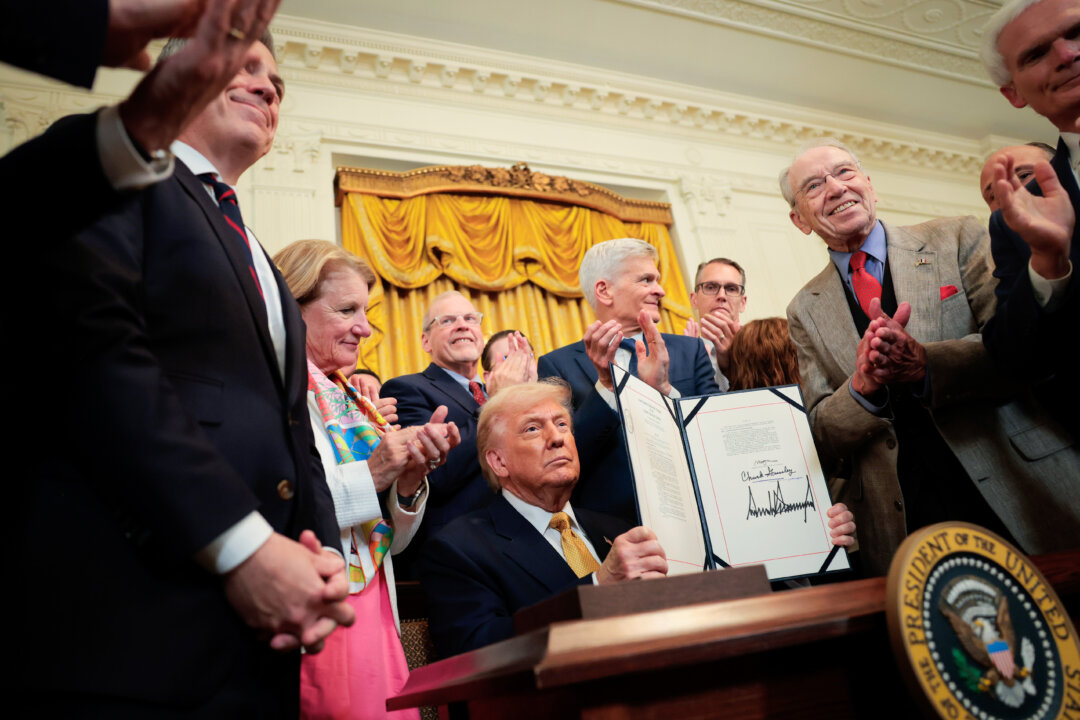Trump Signs HALT Fentanyl Act to Combat Drug Trafficking
President Trump has signed the HALT Fentanyl Act, enhancing penalties for fentanyl trafficking to combat the opioid crisis and reduce drug-related fatalities.
Subscribe to unlock this story
We really don't like cutting you off, but you've reached your monthly limit. At just $5/month, subscriptions are how we keep this project going. Start your free 7-day trial today!
Get StartedHave an account? Sign in
Overview
- President Trump signed the HALT Fentanyl Act to address the opioid crisis and reduce drug-related deaths.
- The legislation classifies illicit fentanyl knockoffs as Schedule 1 narcotics under the Controlled Substances Act.
- The new law aims to strengthen penalties for fentanyl trafficking and enhance sentencing guidelines.
- This initiative is part of Trump's broader efforts to combat drug abuse and trafficking in the United States.
- The signing of the act reflects ongoing concerns about the rising rates of drug-related fatalities across the country.
Report issue

Read both sides in 5 minutes each day
Analysis
Sources frame the fentanyl crisis primarily through a law-and-order lens, emphasizing punitive measures and the emotional impact on victims' families. They highlight the necessity of strict enforcement and the perceived righteousness of the new legislation, while omitting broader discussions on drug policy or alternative approaches.
Articles (4)
Center (1)
FAQ
The primary purpose of the HALT Fentanyl Act is to combat the opioid crisis by permanently classifying fentanyl-related substances as Schedule I narcotics and strengthening penalties for fentanyl trafficking to reduce drug-related fatalities.
The HALT Fentanyl Act permanently classifies fentanyl and all fentanyl-related substances as Schedule I drugs under the Controlled Substances Act, making the temporary scheduling, which was set to expire, permanent.
Critics argue that the HALT Fentanyl Act expands harsh mandatory minimum sentences, a policy seen as ineffective in reducing drug use and disproportionally impacting communities of color. They also express concern that the permanent classification may hinder research into beneficial fentanyl-related substances and treatment development, as the crisis is viewed better addressed as a public health issue rather than solely a criminal one.
The HALT Fentanyl Act has received broad bipartisan support in both the Senate and the House of Representatives, passing with strong majorities. It is endorsed by key law enforcement organizations such as the Drug Enforcement Administration of Federal Narcotics Agents and several national narcotics and law enforcement associations.
The Act is considered urgent because fentanyl is the leading cause of death for Americans aged 18–49, with rising drug-related fatalities nationwide. The legislation seeks to permanently maintain law enforcement tools necessary to keep lethal fentanyl and fentanyl mixtures off the streets, addressing a critical public health and safety crisis.
History
- This story does not have any previous versions.




